Tax reform and constitutional recognition among Labor’s ‘unfinished business’: Bill Shorten
Bill Shorten has justified parts of his ambitious agenda while Labor leader – including the ‘unfinished business’ of tax reform – as he gave his final thanks to the house.
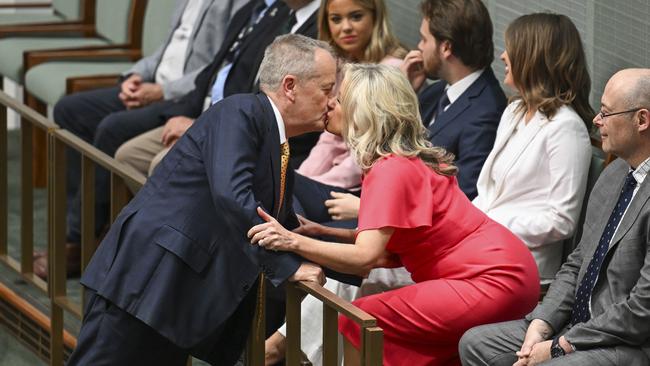
Bill Shorten says tax reform is “unfinished business” and property is still taxed too “lightly”, as he used his last speech in parliament after 17 years as an MP to justify his ambitious agenda for the Labor Party and the nation.
The 57-year-old former Australian Workers Union national secretary labelled himself a “proud moderate” and a man who produced some ideas that were perhaps “ahead of their time, if there ever is a time for them”, while noting part of his policy platform had been implemented by the Albanese government.
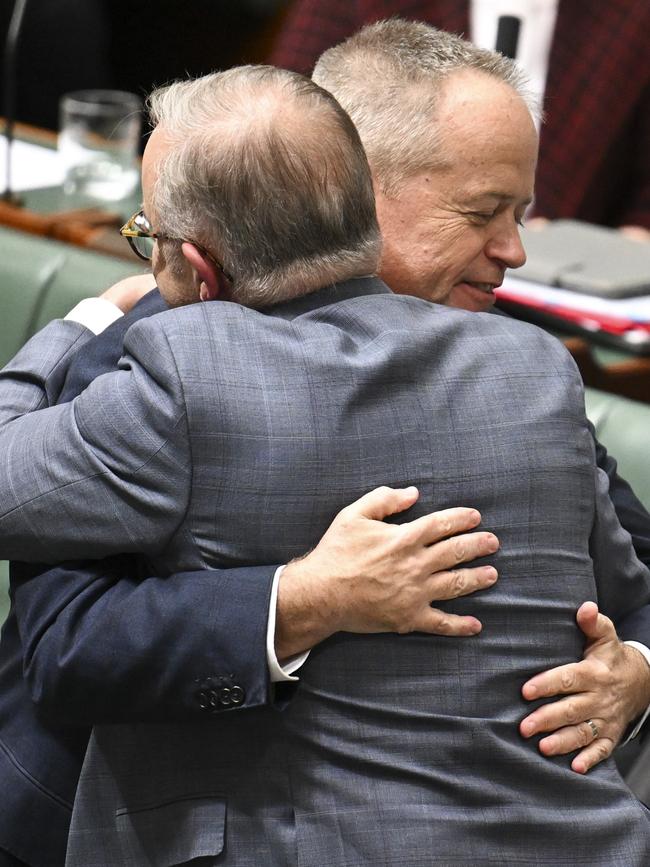
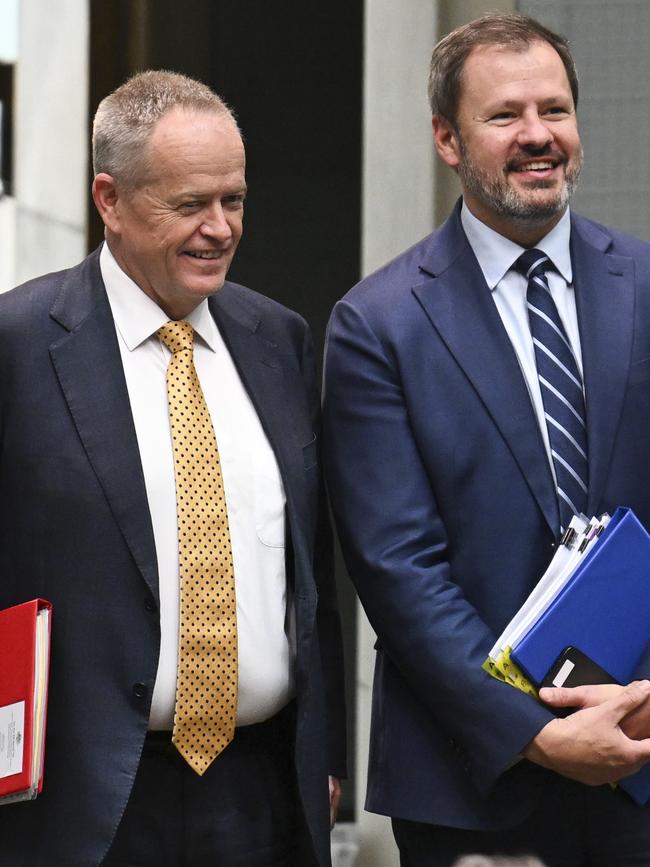
More than eight years after he first unsuccessfully proposed halving the capital gains tax discount and limiting negative gearing to new properties, Mr Shorten urged the parliament to reform tax settings despite similar ideas partly costing him the 2019 election. “I want to talk about some other areas where parliament can do better in the future … The world we live in – and the country we pass on to our grandchildren – concerns every Australian. So too does the unfinished business of tax reform,” Mr Shorten, the NDIS Minister, said.
“At the beginning of this year, the government created fairer income tax cuts for all working Australians but I remain convinced our system still taxes property preferentially and lightly, and income heavily.”
The former Labor leader also urged parliament to tackle climate change, defence and foreign policy reform, constitutional recognition of Indigenous Australians, treaties and the equal treatment of women.
“Parliament has unfinished business with our First Nations people. The Uluru process proposed a voice to parliament to help this process. It was a novel idea. Sadly, recognition in our Constitution has become a toxic issue. I remain hopeful that with good faith on all sides we can achieve recognition of Indigenous Australians in our nation’s birth certificate and genuine empowerment for our First Nations people, including the work of treaties,” he said.
Clearly enjoying his valedictory, Mr Shorten spoke of where his union career had taken him – from oil rigs in the Bass Strait to farms and factories across Australia and Beaconsfield – as he pushed for an unlikely consensus on industrial relations. “There should be no dividing line any longer in this parliament between those who are pro or anti-employer, those who are pro or anti-union. We no longer have to make that false choice. We can work together. The nation needs this,” he said.
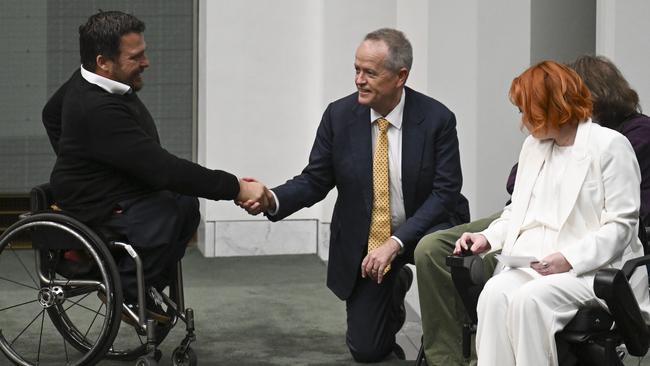
Determined for Hansard to record several final zingers before taking up his job as University of Canberra vice-chancellor in February, Mr Shorten received the biggest laugh when he reflected on an awkward campaign moment in 2016 when he bit into a sausage sizzle from the side.
“You do regret your mistakes, you don’t forget your failures. Oh, what I would give to go back to election day 2016 and turn that sausage in bread around the right way,” he said.
“But some of your failures become the best part of you. I’ve known some extraordinary highs and some painful lows, good days and hard days, but I would not hand back a single minute of a single hour of a single day I’ve spent in this place, or in this job.”
With Labor luminaries including Bill Kelty, Mark McGowan and Morris Iemma watching from the galleries, and his family, disability advocates and colleagues listening from the floor of the chamber, Mr Shorten offered a long list of thanks to the people of his electorate of Maribyrnong and tabled a roll call of his 196 staff.
Mr Shorten, whose unpopularity was found to have contributed to his 2019 election loss, didn’t fulfil his ambition to lead the country after defying the odds to beat Anthony Albanese in a leadership contest and taking a class warfare agenda to the people aimed at helping low-income workers and targeting investors and big business.
Yet as he exited the house on the hill, it was a little easier for him to see the funny side. “It remains a source of enduring pride that the last act of collaboration between Paul Keating and Bob Hawke was their joint opinion piece advocating for the platform we took to the 2019 election.
“It is just a shame more people didn’t read it,” he said.


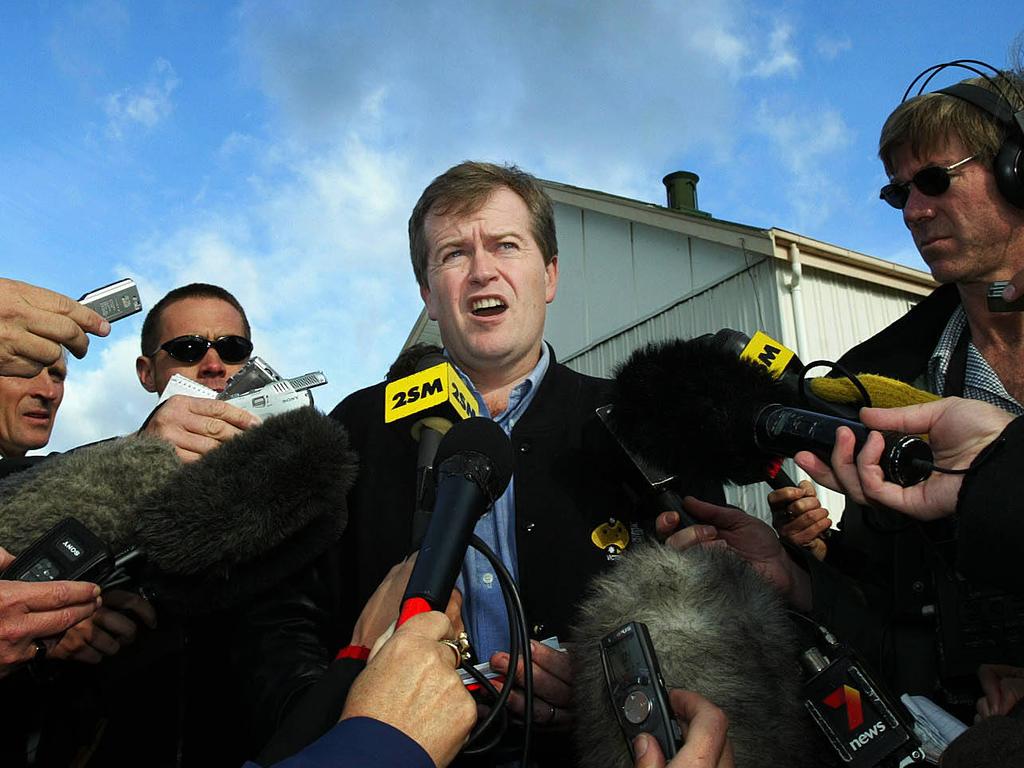


To join the conversation, please log in. Don't have an account? Register
Join the conversation, you are commenting as Logout